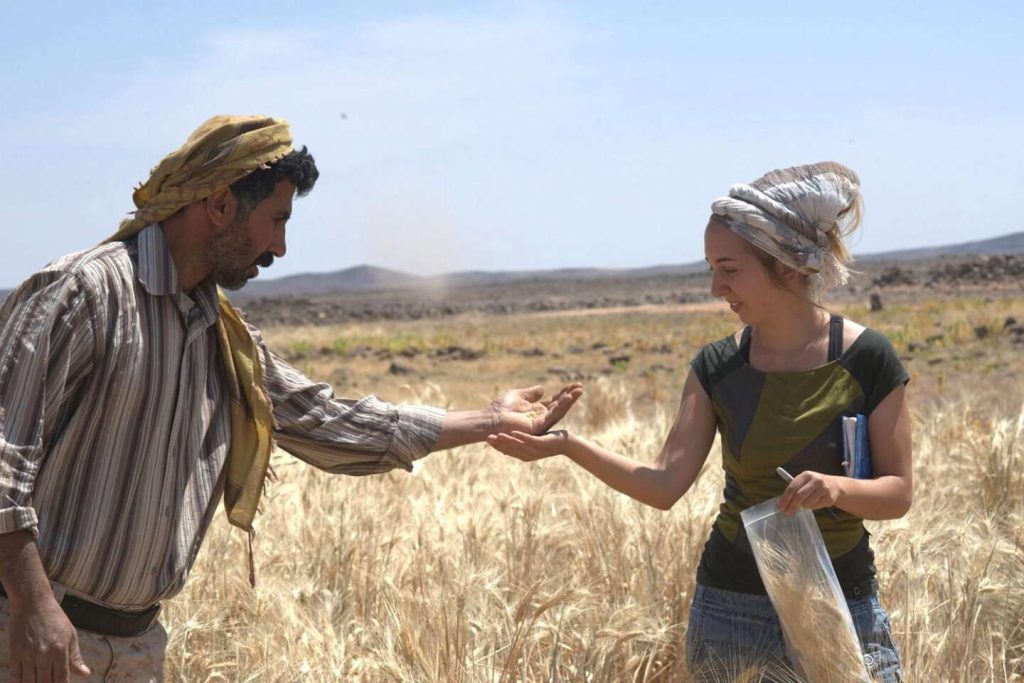Researcher Amaia Arranz-Otaegui received samples of cereal from Ali Shakaiteer, a research assistant, at the site of Shubayqa one in Jordan, where remains of bread baked by hunter-gatherers 14,400 years ago were discovered, the oldest known trace of bread to date. Amaia Arranz-Otaegui is a creative researcher, whose academic background led him to specialize in plant biology after a PhD in botany, before transitioning to the history of ancient Near East. With his latest book, “Les Graines de l’au-delà. Domestiquer les plantes au Proche-Orient”, Amzallag combines his expertise in botany and archaeology to propose a new original thesis on the genesis of religions, linking plant domestication and the birth of deities.
Plant domestication is generally seen as a pivotal event in human history, as it involves transforming plants to make them unable to perpetuate without human intervention, such as irrigation and weeding. On the other hand, the simple act of cultivation may not involve such transformations. There are approximately fourteen primary centers of plant domestication identified across the world, such as in the Near East, China, the Amazon, and West Africa, where these transformations occurred thousands of years ago. Domesticated plants have played a significant role in shaping the world according to human needs, contributing to the formation of societies and cultures.
However, Amzallag questions the commonly accepted link between environmental domestication and human appropriation for two reasons. Firstly, treating domestication as a uniform phenomenon overlooks the diversity of events and consequences associated with it. For example, plant domestication in New Guinea did not lead to a clear break from the wild world or its transformation into a resource. Secondly, assuming intentionality behind the domestication process implies a desire for appropriation that may not have been present initially. Domestication is a mysterious process, and it cannot be assumed that it was desired before showing its first results.
Amzallag’s book challenges conventional views on the origins of monotheistic religions, suggesting that the Israelites did not “invent” Yahweh, the original deity of monotheism, but rather adopted a secret divinity born in a community of Qenite blacksmiths. By connecting plant domestication with the rise of deities, Amzallag proposes a new perspective on the relationship between humans and their environment, exploring how the cultivation of plants has influenced the development of societies and religious beliefs. This interdisciplinary approach merges botany and archaeology to shed light on the deep connections between humans, plants, and spirituality throughout history.
In conclusion, the study of plant domestication offers insights into the evolution of human societies and cultures, revealing the intricate relationships between humans, plants, and the environment. Amzallag’s innovative research challenges established theories on the origins of religions and suggests new perspectives on the role of domesticated plants in shaping human beliefs and practices. By examining the link between plant domestication and the birth of deities, Amzallag invites readers to rethink the ways in which humans have interacted with and transformed their natural surroundings, highlighting the fundamental importance of plant cultivation in the development of civilizations. Through his interdisciplinary approach, Amzallag offers a fresh perspective on the complex interplay between humans, plants, and spirituality, contributing to a deeper understanding of the deep roots of human culture and belief systems.


